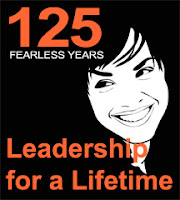 I love this review of THE WONDER OF CHARLIE ANNE by Ed Spicer, a reading specialist who regularly writes reviews for Michigan Reading Journal. Mr. Spicer has served on the Michael Printz Committee, BBYA, the Caldecott Committee, Notable Children's Books, the Morris Committee, and very soon he will be on the 2013 Margaret Edwards Committee.
I love this review of THE WONDER OF CHARLIE ANNE by Ed Spicer, a reading specialist who regularly writes reviews for Michigan Reading Journal. Mr. Spicer has served on the Michael Printz Committee, BBYA, the Caldecott Committee, Notable Children's Books, the Morris Committee, and very soon he will be on the 2013 Margaret Edwards Committee."Charlie Anne’s mother has died and now her father is taking her brother Thomas far from home to build roads. The depression is forcing many families to sacrifice. Charlie Anne has eaten potatoes about a hundred different ways.
Charlie Anne will be staying with cousin Mirabel who attempts to civilize her by reading to her from a manners book. When Old Mr. Jolly takes a new wife, one who wears pants, red pepper red pants, Charlie Anne thinks she may have a friend. Rosalyn has an adopted daughter, Phoebe and Phoebe is "colored."
Mirabel won’t even think of allowing Charlie Anne to associate with this family. The
final straw is when her Aunt Eleanor from Boston takes her younger brother Peter to live with them, all the while making it clear that they have no need for girls.Charlie Anne, however, will just see about any attempt to turn her into something she is not!
The distinguishing characteristic in the novel is the voice of Charlie Anne.
Writers who attempt to depict conversations between dead people and the living
often sound, of course, stiff and unnatural. Fusco’s skill is that when Anna
May and Belle, the cows, comment on the events in Charlie Anne’s day or when
Charlie Anne hears the voice of her mother moving across the river, she makes
these voices seem natural and appropriate:
“When I get myself settled, with my back lying up next to Anna May and my eyes
feeling all happy to be filled up with the sight of my beautiful Brown Swiss
Belle, that’s when the two of them tell me how very sorry they are that I am
having enough troubles to fill a wheelbarrow.” (p. 105)
“When I get to the river, I am out of breath. I go up and sit by Mama and rest
for a minute, and I tell her about my awful day, and she tells me she already
knows about it all, but I can tell her some more if it will make me feel
better.” (p. 32).
Fusco waltzes between issues of race, poverty, education, religion, and
politics with skill and without ever having any of these issues muffle the
voice of Charlie Anne. It is no accident that Charlie Anne mentions the book,
Huckleberry Finn—she is definitely Huck’s twin sister.
Purchase this one for middle school and high school libraries."
Read more of Mr. Spicer's reviews at http://www.spicyreads.org/










